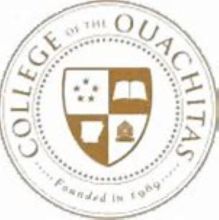College of the Ouachitas


Selected Programs at College of the Ouachitas
Explore programs at College of the Ouachitas. This list is curated by SkillPointe to match skills-based industries and careers that don't require a four-year degree.
Browse Training Programs (27)
Welder
Gas Metal Arc Welding Certificate
ASUTR’s welding program introduces the student to basic welding techniques as well as the tools, materials, and equipment used in SMAW (STICK), GMAW...
View Program
Gas Tungsten Arc Welding Certificate
ASUTR’s welding program introduces the student to basic welding techniques as well as the tools, materials, and equipment used in SMAW (STICK), GMAW...
View Program
Pipe Welding Certificate
ASUTR’s welding program introduces the student to basic welding techniques as well as the tools, materials, and equipment used in SMAW (STICK), GMAW...
View Program
Shielded Metal Arc Welding Certificate
ASUTR’s welding program introduces the student to basic welding techniques as well as the tools, materials, and equipment used in SMAW (STICK), GMAW...
View Program
Welding Technology Certificate
ASUTR’s welding program introduces the student to basic welding techniques as well as the tools, materials, and equipment used in SMAW (STICK), GMAW...
View Program
Welding Technology, A.A.S.
ASUTR’s welding program introduces the student to basic welding techniques as well as the tools, materials, and equipment used in SMAW (STICK), GMAW...
View Program
Certified Nursing Assistant
Medical Records and Health Information Technician
Medical Coding Certificate
Medical Coding is a 31 -credit hour program offering specialized training in the review of medical documents for the assignment of ICD-9-CM and CPT...
View Program
Medical Office Administration Certificate
Medical Office Administration is a 30-credit hour certificate program. All credit is applicable to the AAS Medical Office Administration Degree...
View Program
Medical Office Administration Certificate of Proficiency
Certificate of Proficiency Program Description: Medical Office Administration Certificate of Proficiency is a 9-credit hour program designed to...
View Program
Medical Office Administration, A.A.S.
Medical Office Administration is a 64- or 66-credit hour program offering specialized clinical and administrative skills required to coordinate office...
View Program
Medical Terminology Certificate
Medical Terminology Certificate of Proficiency is a 10-credit hour program designed to provide students with knowledge of medical terminology and an...
View Program
Nurse - LPN / LVN
Practical Nursing Technical Certificate
The Practical Nursing (PN) program is designed to prepare students for employment in the health care field and for the National Council Licensure...
View Program
Data Security Management
Network Security Certificate
This certificate prepares students to effectively safeguard and secure a network against hackers, intruders and anyone trying to gain access to a...
View Program
IT Support Specialist
Computer Repair Certificate
This program prepares students to troubleshoot computer and interface circuits, test and repair digital equipment, and test and repair computer...
View Program
Network and Computer Systems Administrator
Business Systems Networking Certificate
This program prepares students to become certified in network design, installation, management, and repair of networks. Students learn important...
View Program
Computer Information Systems A.A.S.
Students in this program will develop a working knowledge of network administration, e‐mail, the Internet, voice mail, network operating systems...
View Program
Software Developer
Computer Programming Certificate
This certificate prepares students with the necessary tools in programming to enhance their abilities to manage and support network administration...
View Program
Electro-Mechanical Technician
Mechatronics Operation Certificate
Mechatronics integrates electronics, mechanics, pneumatics, hydraulics, and information technology and computer control systems into a single...
View Program
Mechatronics Practice Certificate
Mechatronics integrates electronics, mechanics, pneumatics, hydraulics, and information technology and computer control systems into a single...
View Program
Mechatronics Technology Certificate
Mechatronics integrates electronics, mechanics, pneumatics, hydraulics, and information technology and computer control systems into a single...
View Program
Mechatronics, A.A.S.
Mechatronics integrates electronics, mechanics, pneumatics, hydraulics, and information technology and computer control systems into a single...
View Program
Correctional Officer
Criminal Justice, A.A.S.
This program is designed for students who wish to pursue a career in law enforcement or corrections or for individuals already employed in the field...
View Program
Police Officer
Criminal Justice, A.A.S.
This program is designed for students who wish to pursue a career in law enforcement or corrections or for individuals already employed in the field...
View Program
Truck Driver
Truck Driver Training Certificate
Truck driving is one of the “high demand occupations” listed with the Arkansas Department of Labor. Department of Labor statistics indicate that...
View Program
College of the Ouachitas
Address
One College Circle
Malvern, AR 72104-0816
Malvern, AR 72104-0816
Phone number
501-337-5000